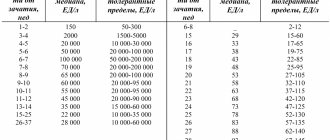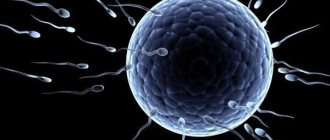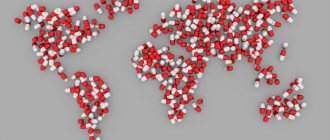So, congratulations, a little life has appeared in your tummy. But, periodically, a harmful “itch” begins to arise in the head, which whispers: “Maybe pickled cucumbers, or tomatoes, or salted fish?” And it is extremely difficult to resist him; most often, a newly pregnant woman sweeps away everything from the refrigerator. So, let's figure out why you crave salty foods during pregnancy?
Causes of cravings for salty foods in pregnant women
The craving for salty foods in pregnant women is explained by the characteristics of the human body. Despite disagreements among experts about its benefits, they unanimously deduce the reasons:
Lack of sodium - a child, while in the womb, takes some of the salt from the parent's body. This means there is a sodium deficiency. This trace element is too important for the functioning of many organs, so mothers feel an immediate need to restore it.
Active production of progesterone is a pregnancy hormone that relaxes blood vessels. When it is produced, blood circulation slows down and blood pressure decreases. The person begins to feel nausea, drowsiness and shortness of breath, causing dizziness. To increase blood pressure, women rely on salty foods, which forces them to drink more water, which replenishes their blood reserves. The blood pressure returns to normal and health improves.
Addiction to salty foods is far from a myth. It’s just that not all pregnant women experience this condition. It is especially typical in the first trimester, when eating salt is very easy to explain. It is only important to follow the rules so as not to cause harm. After all, any product is useful only in limited quantities.
Why do you crave salty foods during pregnancy?
There is an opinion that salt is harmful to our body and therefore received the nickname “white death”. In fact, the human body cannot exist completely without salt. It is not for nothing that in ancient times it was a very expensive spice. After all, salt contains sodium, a substance whose deficiency disrupts the normal functioning of some internal organs. During pregnancy, expectant mothers often crave salty foods, sometimes irresistibly. It's all about hormones. After conception has taken place, the woman’s body begins to intensively produce progesterone in order to preserve the fetus. It has a relaxing effect on the blood vessels, and blood pressure begins to drop slightly. Accordingly, one feels constant drowsiness, dizziness, and sometimes fainting occurs. After salty food, the general condition of the body improves because salt brings blood pressure back to normal. Also, by causing thirst, it forces you to consume more fluids, which increases the amount of blood and improves its circulation. However, it must be remembered that salt retains water in the body and causes swelling. To avoid trouble, you should know the rate of its consumption.
Salt - harm or benefit during pregnancy
A pregnant woman needs salt in reasonable amounts: it brings sodium into the body, and its deficiency provokes a decrease in appetite, which harms the fetus. Therefore, salt-free diets for expectant mothers are prohibited. However, it is very easy to upset the balance in the body. This is especially true for those who had an addiction to salt even before pregnancy. The amount of sodium becomes excessive, causing blood density and pressure to increase, and swelling to appear. The latter is a very common consequence of pregnancy, and salt certainly does not help eliminate it.
Salt is particularly harmful to people susceptible to health problems. Therefore, its use should be strictly controlled if you have at least one of the following pathologies:
- toxicosis;
- problems with the cardiovascular system;
- blood pressure is higher than normal;
- kidney or liver disease.
If you are afraid of overdoing it and harming your body, then you should try alternatives to replenish the salt deficiency. Try lightly salted red fish for this. It contains many useful microelements, so a piece of 60-100 g will not harm. If you have a strong craving, you can add iodized sea salt as an alternative to table salt. Enriched with iodine, it will strengthen the thyroid gland and replenish the deficiency without problems.
What foods and in what quantities are acceptable during pregnancy, and which ones should be avoided?
Pregnant women should give preference to the following products:
- Red fish. If possible, this product should be included in the diet. For normal well-being, 50 grams of this product per week is enough. You need to choose lightly salted and fresh fish.
- Caviar. Due to the significant cost, few people can afford to pamper themselves with fish delicacies, but not so much is needed - about 30 grams per week. You can replace expensive varieties with herring caviar. It is in no way inferior - it also contains many useful substances, but is much cheaper.
- Herring. Despite the fact that this type of salted fish is not as popular in the world as it is here, eating it is useful not only for pregnant women. Herring contains a lot of phosphorus, proteins, vitamin D and calcium. During pregnancy, 4 small pieces per week are enough. Unlike red fish, you should choose well-salted herring. After all, worm larvae die in large amounts of salt within a week, so if the fish was improperly processed, there is a danger of becoming infected with worms.
- Cucumbers. They can be consumed in salted form during pregnancy, no more than 4 pieces per day. Pickled - 2, due to the high vinegar content.
- Consume tomatoes only from your own preparation; it is not recommended to buy them at the market, because it is unknown under what conditions they were prepared. Since these vegetables can provoke changes in blood pressure, it is enough to eat 2 medium-sized pieces per day.
- Sauerkraut does not make everyone want to eat it, but in vain. In addition to a large number of vitamins, it contains valuable folic acid. This essential product relieves the symptoms of toxicosis, eliminates constipation and heartburn. You are allowed to eat about 150 grams per day.
There is no need to remind you that chips, crackers, dried fish and smoked foods are very harmful for pregnant women. Try to avoid such food, you can not only harm yourself, but also your child.
Salt intake during pregnancy
Each trimester of pregnancy has its own salt intake. But it is important to note here that cravings for salty foods are normal only within the first trimester. This is justified by the production of progesterone during the complete formation of the placenta.
Attention! A feeling of need for salt in the II-III trimesters is far from being considered the norm - it indicates the presence of pathology in the development of the fetus, an inflammatory process, underdeveloped immunity or a deficiency of protein foods. In this case, consult a doctor immediately.
In order not to disturb the salt concentration, follow the rules for its use:
- During the period of strong cravings during the first trimester, salt intake of more than 12 grams should not be allowed.
- For the second trimester, only 9 grams per day are allowed.
- During the third trimester, salt should not exceed 3 grams.
These are only general norms; they may vary depending on the individual characteristics of the body. For example, due to the fact that salty foods increase appetite, the amount of salt should not exceed 1-2 grams per day for obese women. The same applies to mothers with certain chronic diseases.
Can pregnant women eat pickles?
A dietary product that most people in our country love, cucumber is considered one of the favorite treats during pregnancy. However, how often can it be eaten, in what form, and who should give it up while pregnant?
Hidden benefits and harms: cucumbers and pregnancy
Thus, for some, green fruit is an irreplaceable source of low-calorie nutrition containing iodine, while for others it is a heavy product that causes bloating and heaviness in the stomach.
That is why a pregnant woman, who is already subject to many changes during the period of bearing a baby, should become familiar with the benefits and dangers of such a vegetable.
Cucumbers during pregnancy: is it possible or not?
Perhaps the first sign of pregnancy is a woman’s craving for salty and sour foods. Lightly salted cucumbers and tomato juice, consumed in large quantities by a girl, even before pregnancy is determined using a test, are a sure sign of conception. That is why, if you have the desire to eat a few cucumbers with gusto, you should think about the likelihood of future motherhood.
The question of the benefits and harms of such a product during pregnancy is a controversial one. Some doctors believe that cucumber is quite difficult to digest in the gastrointestinal tract, while others do not consider it harmful. However, when leaning in one direction or another, it is worth considering a number of features:
- Woman's age.
- Gestational age.
- Presence of liver and stomach diseases.
- Taste preferences of the expectant mother.
If you really want to eat a cucumber, and this process will bring a lot of pleasure, you should not deny yourself such joy. You just need to remember the number of servings, their regularity and combination with other products.
When determining the likelihood of consuming a vegetable during pregnancy, it is worth considering in more detail its beneficial and negative qualities. Among the useful properties it is worth noting:
- Due to the iodine content (0.003 mg) it stabilizes the functioning of the thyroid gland.
- Alkaline salts prevent the formation of kidney stones and slow down the natural aging process.
- It is used as a mild laxative for chronic constipation, which is important during late pregnancy.
- The antibacterial properties of lightly salted cucumbers help cope with the first manifestations of tonsillitis and ARVI.
- The potassium contained normalizes blood pressure.
- Stabilizes cholesterol levels in the blood and normalizes kidney function.
All these beneficial properties are offset by the fact that purchased vegetables, especially out of season, may contain large amounts of nitrates. Therefore, if you want to get exceptional benefits, you should eat homemade cucumbers from your home garden.
What salty foods can you eat?
Each product has its own salt concentration, and not all of them are healthy. Let's look at the most common and best craving-quenching foods:
Pickled cucumbers are the first food that immediately comes to mind. However, you need to be careful with her. No more than 1-2 cucumbers per day is allowed. Such restrictions are imposed not only because of the salinity, but also because of the presence of acetic acid in them and the ability to increase appetite.
Fish is the best food of all. The content of a large number of microelements in it is of great benefit for the development of the fetus.
Pickled tomatoes are acceptable as long as they are prepared in person. But it’s better not to experiment with store-bought goods. It causes severe swelling and pressure surges.
Sauerkraut is useful because it contains not only vitamins, but also folic acid. Cabbage relieves toxicosis, heartburn and constipation. The main thing is not to overdo it.
If you want something strange - you lack iron
The need for iron during pregnancy increases sharply, especially in the second and third trimester. A lack of iron can cause you to feel incredibly tired all the time.
One of the signs of iron deficiency anemia may be an irresistible desire to eat something inedible - dirt, soil, clay, coal, chalk, etc. You may also crave more delicious foods that are also rich in iron - red meat, fish, spinach. In this case, it is worth getting tested for iron levels in the blood.
. If it is too low, you will be prescribed vitamins or dietary iron supplements.
Sour and spicy foods during pregnancy
As in the case of salty foods, pregnant women are drawn to sour foods due to hormonal changes. Such products contain a lot of vitamin C and promote the proper absorption of calcium and iron. Therefore, if you do not have individual contraindications, then you can add rose hips, currants, citrus fruits, cherries, apples, etc. to your diet.
Spicy foods are also a distinct taste preference in the first trimester. It has its own benefits: it prevents blood clots from forming, stabilizes blood circulation, and stimulates the secretion of gastric juice. Of the permitted products, take a closer look at onions or garlic, seasonings and sauces containing hot peppers, as well as spices.
Hormones are acting up
Many women wonder: why do you crave salty foods during pregnancy or why do you crave salty foods during your period? There is a logical explanation for this question: hormones are acting up.
As you know, hormonal changes are a difficult period in the body, which can change taste preferences. So, pregnancy and menstruation are the very moments of hormonal changes. We suggest talking about each case separately.
Is it possible to eat salted and dried fish?
Any fish for a pregnant woman should be selected based on its degree of salinity. Give preference to lightly salted products. Red fish is the most useful. Among pregnant women, herring is also a priority. It is more enriched with salt, but at the same time it is extremely healthy. Protein, ergocalciferol, calcium and phosphorus have a beneficial effect on the body. It is enough to limit yourself in quantity, and there will be no harm.
There is also a common question about dried fish. During pregnancy, a product can be dangerous only if its quality is questionable. In other cases, it will only become a source of omega-3 polyunsaturated fatty acid, which is not synthesized independently in our body.
Attention! Eating salty foods should always be diluted with unsalted foods.
If you are not pregnant, but want something salty
There are many reasons why you want salty foods other than pregnancy. The most common cause is a lack of sodium, calcium and iodine in the body. But, this condition can also signal other problems in the body:
- thyroid diseases;
- PMS;
- stress, depression;
- kidney and urinary tract diseases;
- and much more.
If you become more frequent and feel like you want to bite into a pickled cucumber, but pregnancy is ruled out, you should most likely talk to your therapist about it.
Vitaminizing pregnancy or the benefits of fresh cucumbers
During pregnancy, you can eat fresh cucumbers throughout your pregnancy. In case of severe toxicosis, they have a positive effect on the state of a dehydrated body. Cucumber is beneficial for both the fetus and the mother.
Useful properties of cucumbers:
- Potassium maintains water-salt balance;
- Fiber in the skin helps improve the process of bowel movements, copes with constipation, which often torments pregnant women;
- Have a positive effect on the heart and blood vessels;
- Helps remove cholesterol from the body;
- Prevents the formation of sclerotic plaques in blood vessels;
- Have a mild diuretic effect;
- Reduce blood pressure;
- Quench thirst;
- Improves skin conditions.
Cucumbers are low-calorie, so their use is recommended for a diet with severe weight gain. Ripe cucumbers do not lose their quality.
In addition, the vegetable is rich in folic acid, which is very necessary during pregnancy.
Possible consequences:
- Diarrhea;
- Belching;
- Increased gas formation in the intestines.
With these symptoms, the stomach may hurt, which will affect the condition of the mother and have a negative impact on the fetus.
What kind of saltiness to consume during pregnancy should be discussed with your doctor. Some foods can affect a woman’s hormonal system, increase cholesterol, and provoke the development of urolithiasis.
Why does our body need salt?
Without salt, our body will not be able to function fully. What is salt? This is sodium chloride. Sodium is found in our bone and cartilage tissue, in the blood, bile, milk of a nursing woman and in any other cell of our body. Chlorine helps break down fats and is present in urea, gastric juice, extracellular fluid and blood. Thanks to this substance, the central nervous system and reproductive system function normally.
If a person suffers from diabetes, then there is no need for salt. It helps regulate glucose levels.
The best option is sea salt. Since ancient times it has been called an antibiotic. It can suppress the activity of pathogenic microorganisms and has antimicrobial and antiviral effects. It contains maximum minerals.










